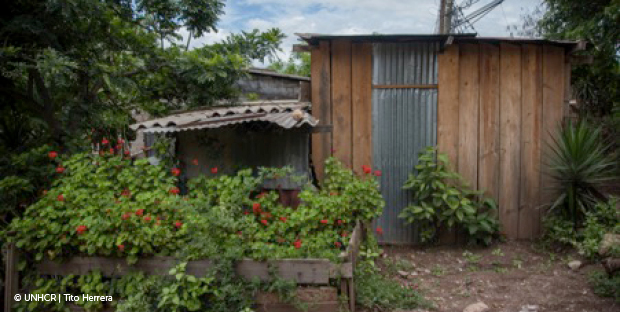JIPS’ support is still strong in Honduras, with a second mission in November to assist the Inter-institutional Commission for the Protection of IDP’s (CIPPDV) for the further development of the 2017-2018 profiling exercise.
The mission aimed to work with the Technical Working Group that leads the profiling exercise in-country, as well as with the operational partner, World Vision Honduras, to support the methodological design and roll-out of a community profiling exercise. The results are expected to feed into the prevention component of the IDP legal framework.
Developing a comprehensive legal framework that addresses all phases of displacement, from prevention to solutions, implies having in-depth knowledge of the process that leads to displacement, that is, what happens before and after people are displaced.
As part of the Honduran Government’s effort to set in place institutional measures to prevent displacement, it is key to know the risks the communities are facing, the protection mechanisms they have access to and their possible coping strategies in view of these risks.

An abandoned house in the La Era district of the Honduran capital, Tegucigalpa, where gang violence is forcing out residents. Displacement is particularly affecting communities that have been traditionally marginalised and excluded.
With the operational support from World Vision Honduras, and technical support from UNHCR and JIPS, the community profiling phase aims to gather input on these elements that can be used for the design of comprehensive policies for the prevention of internal displacement. The information provided will also help identifying themes and indicators that will further complement the quantitative data collection phase of the profiling.
The one-week mission focused on supporting the finalisation, in-country, of a context-specific, protection-sensitive methodology for data collection to understand the risks of displacement at community level.
During fruitful meetings, the CIPPDV – through the profiling Technical Working Group –, World Vision, UNHCR and JIPS discussed and developed a tailored methodology aiming to analyse how communities perceive specific situations of violence as potential drivers of displacement. The first step of the process was jointly defining categories of analysis: specific types of violence that affect the communities and could lead to internal displacement. After this, an analytical framework was developed in order to understand the impact of these types of violence on the community using as a starting point the following questions:
Once the analytical framework developed, World Vision, UNHCR and JIPS jointly worked on the design of the of data collection tools, namely focus groups and key informant interviews. In a challenging security context this implied mainstreaming a protection and do-no-harm lens throughout the process, including finding a balance between gathering necessary data and approaching the issues in a context sensitive manner. In this sense, together with the Technical Working Group and the above-mentioned partners we will follow up on the implementation of the methodology and tools, making sure protection concerns are taken into account throughout the process.
Finally, inputs to understand displacement and work towards its prevention would not be complete if we did not take into account the differentiated impact of violence on the girls and boys, women and men, members of the communities. Therefore, the methodology includes a gender component: the analytical framework and some of the data collection tools were designed to capture differentiated information on the risks and impacts of violence on male and female members of the community including, whenever possible, age differentiations.
This will provide the Technical Working Group and, overall, the CIPPDV with gender-specific information on the way the different types of violence affect different community members, allowing for more in-depth information on drivers and impacts of displacement that can feed into a prevention framework.
The Technical Working Group and partners in-country will continue supporting the roll-out of this first phase of data collection, after which the data will be processed and analysed. JIPS will provide remote assistance for the upcoming phases of the profiling and hopes to follow up with a new mission in 2018, in coordination with the CIPPDV and UNHCR.
So stay tuned for more updates on this exciting opportunity to contribute to prevention, assistance and solutions to displacement!